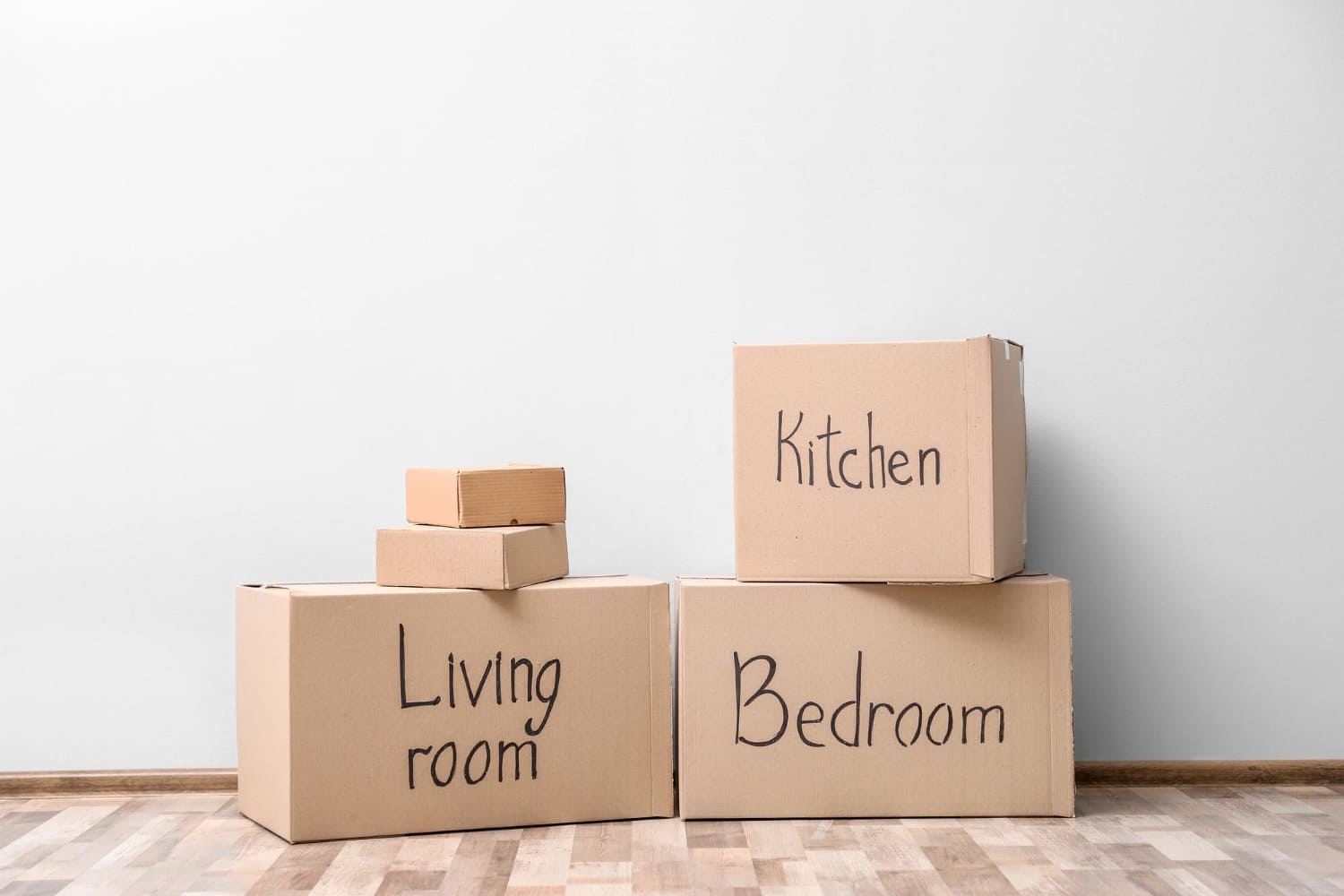
How much do movers cost is a question we encounter a lot from people considering the services of a professional moving company. And understandably so.
Moving is not the cheapest service in the world. As such, you want to properly budget for it because chances are it’s going to cost you way more than you can dig from the back of the sofa.
Then again, that depends… On a slew of factors.
You see, the average moving company cost can be tricky to gauge because unlike services that come with a fixed price tag, the cost of moving services can depend on a million things.
Before a mover can charge you, there are several considerations they have to factor in. Like the scale of the job, for instance. Or distance to be covered. How far the moving truck will be parked from your residence (old or new). Or if there are any specialty items to be moved. Or if there are additional services such as storage you will require. And much more.
How much do movers cost is the topic we shall be covering in this post, and for simplicity purposes, we will break it down into two types of moves: local moves and long-distance moves. The costs of both types of moves differ by a wide margin, and we will explain why.
Of course, you always have the option to move yourself or hire movers (depending on your budget). But if you’re like most people and would rather not deal with the hassle of a DIY move, knowing how much to hire movers for is important.

How Much Do Professional Movers Cost: Local Moving Cost
First things first… By definition, a local move is generally a move not exceeding 150 miles, usually within the same area.
A local move could involve shifting furniture up a flight of stairs to an apartment down the block or relocating a 5-bedroom house 50 miles away.
Common Price Ranges
Local moves are usually charged on a per-hour basis, although some moving companies also offer a flat fee; in some cases, both.
Question is then, how much do movers cost per hour?
As we mentioned earlier, there is no definite figure on the cost of hiring a professional moving company (local or not) as this is dependent on a spectrum of factors. However, there are general price ranges you can expect that can help you estimate how much are movers per hour.
On average, a local move in 2022 can fall anywhere between $200 on the lower side and $12,000 on the higher end; sometimes more. A wild average, we know. But there’s a reason.
Hourly Rates
Perhaps the best way to explain why the average moving company cost varies so much is to break it down:
- Studio Apartment – Usually takes 2 workers working at the rate of $125/hour, a common hourly rate with many reputable movers. Approximate time to move a studio is 3 hours;
- 1 Bedroom – Takes 2 workers on average who are on $125-$150/hour depending on the company. Approximate time to move a standard 1-bedroom is 4 hours;
- 2 Bedroom – Takes 3 movers on average at a fee of $125-$150 an hour. Approximate time to move is 6 hours;
- 3 Bedroom – Requires approximately 4 movers at a fee of $150/hour. Approximate time to move is 7 hours;
- 4 Bedroom – Requires about 4 movers at an average fee of $150/hour. Approximate time to move is 9 hours;
- 5 Bedroom – Could take 5 movers working at a rate of $150-$200/hour. Approximate time is 12 hours.
Keep in mind that these are the going rate estimates to serve as a guide; how much you actually end up paying will depend on many things. The hourly cost aside, a mover’s reputation also informs the cost, as does the actual number of workers involved in each move.
As well, you can decide whether to enlist the help of the movers for certain aspects of the move or have them handle the entire relocation for you (full-service move).
Packing and Moving
The moving company does the packing for you (with the option to provide packing supplies), in addition to transporting your belongings from your current residence to your new home if you don’t have a truck. The loading and unloading part comes at an extra cost; as does the unpacking.
The cost of packing and moving largely depends on the number of rooms and total square footage of your house. Packing alone usually comes in at around $1,000 on average, but subject to other factors, you can expect to fork out anywhere between a few hundred bucks and north of $2,000.
Full-Service Move
A full-service move covers the main aspects of the move, notably:
- Packing;
- Furniture disassembly;
- Loading;
- Transportation;
- Unloading;
- Unpacking;
- Furniture assembly.
If you’re curious to know how much do movers cost if you opt for this type of move, the costs are a bit higher for obvious reasons (in the region of $2,000 and above depending on square footage and distance you’re traveling).
If you can swing it, though, a full-service move is the most ideal option as the moving company basically does everything for you; bar aspects like cleaning which falls under a type of moving service known as white glove service.
Worth remembering is that a full-service move is not usually a one-day affair: it may spread out over the course of a week or two. That’s because movers approach the process piecemeal – they will come and do the packing, put the items in storage for a couple of days, before finally transporting them.
As such, the best way to go about a full-service move is to plan ahead (including booking) to avoid inconveniences. That way, the moving company can work within your schedule going by the agreed-upon dates.
The bonus is that you also get to enjoy better rates when you book in advance!

How Much Do Professional Movers Cost: Long-distance Moving Cost
Now that you know local moving services are largely billed on an hourly basis and have an idea of how much do movers cost per hour, let’s look at how much to hire movers for if you’re traveling long distance.
Before we proceed, however, it would be apt to clarify what a long-distance move actually is.
This is generally any move that involves more than 400 miles. It may or may not cut across state lines, meaning it can be intrastate (within the same state) or interstate (across states) depending on the distance being covered.
So, how much do movers cost when relocating long-distance?
Common Price Ranges
The average moving company cost for long-distance moves could range broadly, usually between four figures ($1,000+) and five figures ($10,000+) based on distance and weight of belongings.
For example, relocating a 1-bedroom that weighs around 2,000 pounds for 450 miles will set you back a few thousand dollars.
If we are talking a cross-country move of 1,200 miles (think New York to Florida) for a 2-bedroom house weighing 5,000 lbs., you can expect to part with up to $6,000 on average, give or take.
Moving the same house from California to New York (2,900 miles) can easily cross the $10K mark, although depending on the factors (see “What Affects Moving Costs” below), you could even end up paying as little as $5,000.
Amount of Your Belongings
The volume of inventory is one of two main factors that dictate the cost of a long-distance move.
As we have seen from the example above, the more the amount of belongings in question, the higher the cost.
Distance Being Traveled
The cost of a long-distance move will also largely depend on mileage.
Most companies will charge you per mile. Obviously, the longer the distance, the more you can expect to pay.
However, there are plenty of other things to take into consideration that can influence the cost of a long-distance move. We have discussed these in the subsequent section.

What Affects Moving Costs?
The answer to the question “how much do movers cost?” will usually not come with a definite figure.
As we have alluded to multiple times herein, there are a host of other factors that could increase or reduce relocation costs, particularly with long-distance moves which tend to be more complex than relocating down the block or from one county of your state to another.
These include:
- Season of the Year – Summertime is the most expensive time of year to move. Known as peak moving season, the months between May and September are the busiest window for moving companies as this is when the majority of people traditionally relocate. Therefore, moving rates are typically higher, especially if you happen to book last-minute;
- Date of Your Move – It’s cheaper to move in the middle of the month than end month when everyone else is moving. Similarly, as weekends are the more preferred days for moving for most people, moving midweek will cost you less;
- Size of Your Move – The bigger the move, the higher the costs you can expect to contend with. For example, moving a one-bedroom is cheaper compared to a three-bedroom house, be it a local or long-distance move;
- Distance of Your Move – We have already talked about distance vis-à-vis relocation in detail. In a nutshell, the longer the distance, the more the costs you will be staring at;
- Labor (Partial DIY or Full-Service) – You can reduce the costs of your move by handling some of the aspects of the move yourself (packing, for instance). However, while a full-service move is costlier, the upside is that it is less stressful and a huge time-saver.

How Much to Hire Movers: Additional Services and Fees to Consider
When determining how much do movers cost, there is a raft of other (often overlooked) fees that can raise your moving bill. A reputable moving company will often communicate this beforehand rather than surprise you with these charges post-move.
Speaking of reputable, when choosing an ideal moving company, beware of red flags associated with fake moving companies that can easily turn your moving experience into a nightmare.
Examples of additional charges you can expect include:
- Packing Supplies – Moving companies charge for packing supplies if you source the materials from them, whether it’s moving boxes, bubble wrap, packing paper, etc.;
- Stair Carry Fees – The first flight of stairs is usually inclusive in the standard cost. However, most movers charge extra for every additional flight;
- Long Carry Fees – This is a fee charged when the moving company cannot pack their truck within 100-150 feet of your building’s or property’s front door. You can avoid this charge by reserving parking space in advance (where applicable);
- Elevator Fees – You might also incur an elevator charge if a). your crib is on a floor that requires a lengthy ride up or b). your building elevator is too narrow as to necessitate more trips than would otherwise have been the case;
- Specialty Items – These are bulky and/or sensitive items which require special skill and are challenging to move. No, not furniture – think bathtubs, safes, antiques, pianos, pool tables, motor bikes etc.; Unpacking – Yup! This is not usually part of the standard package and has to be paid for separately. Most people do their unpacking anyway, but you can put your feet up and let the moving crew sort it out for you at a small extra fee;
- Storage – If you need a place to store your belongings in the midst of your relocation, a good chunk of moving companies double up as storage companies and would be happy to store the items for you. At an extra cost, of course;
- Extra Stops – If you need to drop in on granny en route to your destination and want the movers to stop by, most will usually charge an additional fee for it;
- Fast-Tracked Delivery – An extra charge incurred if you choose to have your items delivered on or before a certain date (aka an earlier delivery than scheduled);
- Tipping – Of course, tipping is not compulsory but an unspoken rule rather. Moving is a tough job, and if you feel satisfied with the service, you can offer the moving crew a token of appreciation. The tip amount is up to you.

How Much Do Movers Cost: Tips to Decrease your Moving Cost
When it comes to moving costs, there are several practical measures you can institute to bring down your moving bill:
- Change the Move Date – Instead of moving in summer, consider the cooler months if it’s not too inconvenient (all things considered). As well, if your schedule allows, a date in the middle of the month will cost you less than relocating at the end of the month;
- Embark on a Purge – Sell, donate, or dispose of items not worth moving with, whether it’s excess clothing, old kitchenware, electronics, or even furniture. The less items you have to move, the lower your moving costs will be;
- Book in Advance – Many people don’t know this, but booking with a mover ahead of time (30-60 days in advance) will be cheaper compared to doing it a few weeks before your anticipated move. Last-minute bookings in particular are sure to leave a hole in your back pocket. If you’re moving during the peak months, consider booking 90 days in advance. You’ll be glad you did;
- Source Free Supplies – Packing supplies can add up especially in the case of larger households. The good thing is that it is possible to get these supplies without opening your wallet. This could be from local liquor or retail stores, for example, or online from people who have recently relocated. You can check on Craigslist or local Facebook groups;
- Partial DIY Moving Service – If you’re tight on budget, consider taking up tasks such as packing yourself and only have the moving company provide transport and do the loading/unloading.
{separator}
If you were wondering how much do movers cost, we hope this post has managed to answer your question. While we have shared the price estimates you can expect, some factors might cause your moving bill to fall outside of that range.
The best way to get a definite figure is to request a free estimate from the moving company you are considering. That gives you a better idea of the costs you’ll be looking at come moving day.
Lastly, while reducing costs is nice and all, we do recommend getting extra insurance that is separate from what your mover provides as per the law. Insurance never seems necessary at first, but as always, it can save you a lot in the unfortunate event something goes awry.






